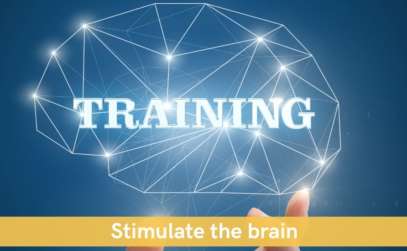Resisting disease: how resistance exercises may help prevent Alzheimer’s
We live in interesting times for dementia research. Various studies have identified small but meaningful way that we can potentially reduce our risk and slow the onset of age-related neurological diseases such as Alzheimer’s, from diet and new drugs to brain games and now, resistance training.
Resistance training and dementia
In a new study published in “Frontiers in Neuroscience”, researchers suggest that resistance training can delay the onset of dementia. The study involved mice with a mutant gene that creates a build-up of beta-amyloid plaques in the brain, and is a major indicator of Alzheimer’s.
The mice were put through their paces over a 4 week period, climbing ladders with weights attached to replicate the kind of resistance training we might do at the gym. The researchers then tested mice blood samples for corticosterone, the mouse stress hormone. Those mice which had exercised showed normal hormone levels and decreased plaque formation in their brains.
Beatriz Monteiro Longo from the Federal University of São Paulo in Brazil, and an author of the study, said:.
“Resistance exercise is increasingly proving an effective strategy to avoid the appearance of symptoms of sporadic Alzheimer’s, which is multifactorial and may be associated with aging.”
She and her team suspect that that this reduction in stress hormone and plaque could be down to the anti-inflammatory action of resistance exercise – more on this below.
Resistance training for seniors
Resistance training has long been recommended by the World Health Organization (WHO) as a way to improve core muscles, improve balance and posture, and help prevent falls in seniors.
As an article in Neuroscience News explains:
“Resistance exercise … is considered an essential strategy to increase muscle mass, strength and bone density, and to improve overall body composition, functional capacity and balance. It also helps prevent or mitigate sarcopenia (muscle atrophy), making everyday tasks easier to perform. … Resistance training also helped in mitigating behavioral issues often associated with Alzheimer’s, such as hyperlocomotion, thereby improving overall wellbeing of the subjects.”
What is resistance training?
Resistance training are simply a set of exercises that work specific groups of muscles by putting them under strain. In a gym, you’d use weights, dumbbells or a stretchy rubber resistance band. Any form of exercise that builds strength in your muscles by resisting gravity is essentially resistance training, including yoga, Pilates, and tai chi.
However, you don’t need to join a gym or take a class. You can do a whole range of exercises at home, with no equipment, and at your own pace. Needless to say, you should always consult your physician to check if resistance training is right for your personal level of health and fitness.
The secret behind successful resistance training is repetition. You might repeat a single exercise 10 times, and then another 10 later. So you can build up your exercise levels slowly over time to improve your muscular strength, as well as potentially lowering your resting blood pressure, and reducing levels of cholesterol. Resistance training can even increase bone mineral density which can help ease arthritis and joint pain from conditions such as fibromyalgia.
Resistance exercises for seniors
There are many simple exercises you can do using items already in your home, such as food times as weights, or simply standing up and out of a chair several times to replicate squats.
- Learn easy exercises you can do at home using just a chair, from Lifeline’s website
- Check out the Active Aging Canada website
- For a more holistic approach, see the the Canadian 24-Hour Movement Guidelines for Adults (65+ years) which integrates activity ideas with a better sleep routine and reducing the time you spend sitting.
Resistance exercise and inflammation
As we age, our body may struggle to balance the oxidants, antioxidants, low-grade inflammation and the way our cells protect themselves against damage by so-called stressors. Here’s the science:
“Healthy cells protect against systemic stress from the accumulation of unfolded and misfolded proteins with an endoplasmic reticulum unfolded protein response (UPR). This response decreases with age and contributes to the increase in systemic inflammation observed with aging.”
A study by the Florida Atlantic University showed that resistance training help the body maintain that UPR response and thus keep inflammation at a normal level.
Look younger!
The other good news is that resistance training has been shown to “Significantly improved skin elasticity and upper dermal structure”. Which means your skin looks younger! And of course if you’re doing extra exercise, you might lose a little weight to, if you want to!
Looking for help to live longer in your own home?
Vytality at Home provide home care visits by our friendly caregivers across Calgary. Contact us to discuss how the Vytality team can you stay in your own home and live independently for longer.
—//—




